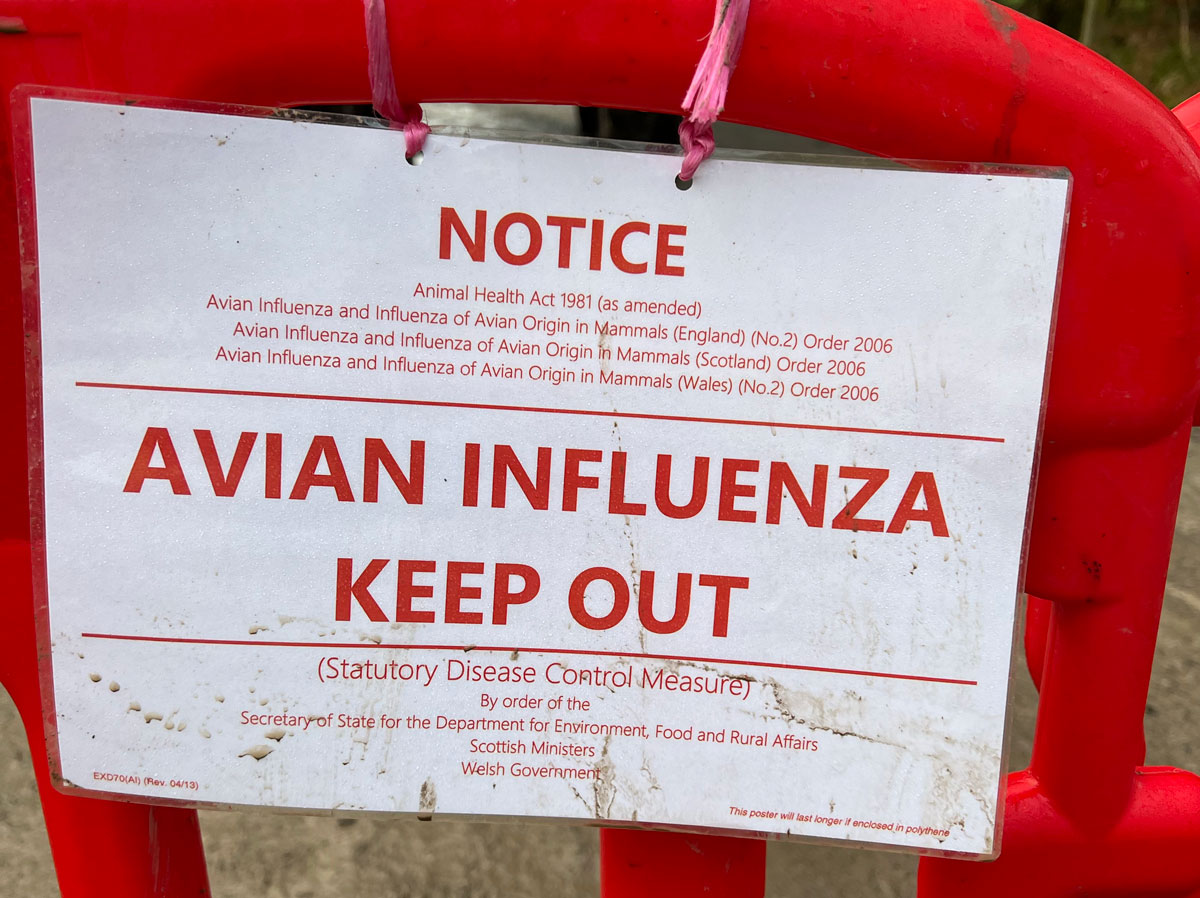
Highly pathogenic bird flu has been confirmed on two farms in Norfolk, just days after the government announced a mandatory housing order for the region.
Avian influenza was confirmed by the government on Tuesday evening (24 December) in commercial poultry at a farm near Hingham.
The H5N1 strain of the virus was also detected in poultry on a farm near Attleborough.
A 3km Protection Zone and 10km Surveillance Zone have been declared around the premises, Defra said.
It added that all affected poultry on the farms would be humanely culled.
The fresh cases come just days after a mandatory housing order was announced for poultry farmers and bird keepers in parts of England.
It came into force on Monday 23 December and covers East Yorkshire, City of Hull, Lincolnshire, Norfolk and Suffolk.
The enhanced, stricter measure is in response to the escalating local risk of bird flu and number of disease cases in the counties.
The UK's chief veterinary officer, who announced the move, said the housing order would help 'reduce the risk of further cases'.
It means all bird keepers, whether they have pet birds, commercial flocks or just a few in a backyard flock, must keep them housed.
The measure is in addition to the requirement to follow the stringent biosecurity measures which have been in force across the counties since 13 December as part of the avian influenza prevention zone (AIPZ).
Chief veterinary officer, Christine Middlemiss, said that farmers and keepers must 'act immediately to house their birds'.
“There continues to be a growing number of avian influenza cases on commercial farms and in backyard flocks across East Yorkshire, Lincolnshire, and in Norfolk and Suffolk.
"To reduce the risk of further cases we are now introducing a mandatory housing order to help keep birds safe from this high infectious disease.
“Bird keepers within the remit of housing measures are encouraged to act immediately to house their birds. Prompt action will help prevent the spread of disease.
"You should also continue to exercise robust biosecurity measures, remain alert for any signs of avian influenza and report suspected disease immediately to the Animal and Plant Health Agency.”
What does the housing measure mean?
The mandatory measure means bird keepers in the affected counties must:
• Housing or netting all poultry and captive birds
• Cleanse and disinfect clothing, footwear, equipment and vehicles before and after contact with poultry and captive birds – if practical, use disposable protective clothing
• Reduce the movement of people, vehicles or equipment to and from areas where poultry and captive birds are kept, to minimise contamination from manure, slurry and other products, and use effective vermin control
• Keep records of mortality, movement of poultry and poultry products and any changes in production
• Thoroughly cleanse and disinfect housing on a continuous basis
• Keep fresh disinfectant at the right concentration at all farm and poultry housing entry and exit points
